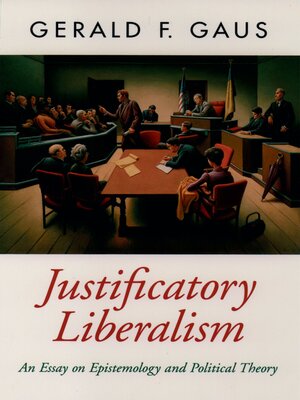Justificatory Liberalism
ebook ∣ An Essay on Epistemology and Political Theory · Oxford Political Theory
By Gerald F. Gaus

Sign up to save your library
With an OverDrive account, you can save your favorite libraries for at-a-glance information about availability. Find out more about OverDrive accounts.
Find this title in Libby, the library reading app by OverDrive.



Search for a digital library with this title
Title found at these libraries:
| Library Name | Distance |
|---|---|
| Loading... |
Gerald Gaus draws on current work in epistemology and cognitive psychology to defend a modest version of cognitive relativism. Building on this theory of personal justification, he asks, "How do we justify moral and political principles to others?" Here, the "populist" proposal put forward by "political liberals"—that the assent of all reasonable citizens must be obtained—is considered and rejected. Because reasonable people often ignore excellent reasons, moral and political principles can be considered conclusively justified, even in the face of some reasonable dissent. Conclusive justification, however, is difficult to achieve, and Gaus acknowledges that most of our public justifications are inconclusive. He then addresses the question of how citizens can adjudicate their inconclusive public justifications. The rule of law, liberal democracy and limited judicial review are defended as elements of a publicly justified umpiring procedure.







